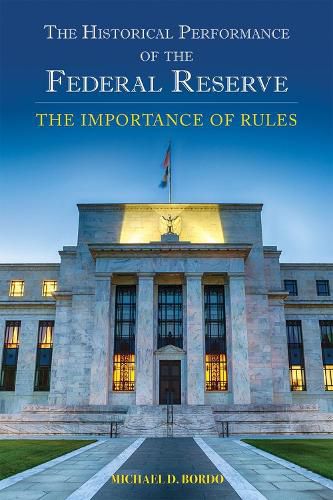Readings Newsletter
Become a Readings Member to make your shopping experience even easier.
Sign in or sign up for free!
You’re not far away from qualifying for FREE standard shipping within Australia
You’ve qualified for FREE standard shipping within Australia
The cart is loading…






Distinguished economist Michael D. Bordo argues for the importance of monetary stability and monetary rules, offering theoretical, empirical, and historical perspectives to support his case. He shows how the pursuit of stable monetary policy guided by central banks following rule-like behavior produces low and stable inflation, stable real performance, and encourages financial stability. In contrast, he explains how the failure to adhere to rules that produce monetary stability will inevitably produce the dire consequences of real, nominal, and financial instability.
Bordo examines theoretical perspectives in monetary theory on the case for stable money and the importance of monetary rules. The author also looks at the historical and empirical record of economic performance (both inflation and real output) across policy regimes. He examines the performance of the Federal Reserve in its pursuit of discretionary monetary policy, and he reviews the history of monetary policy during the Great Depression.
$9.00 standard shipping within Australia
FREE standard shipping within Australia for orders over $100.00
Express & International shipping calculated at checkout
Distinguished economist Michael D. Bordo argues for the importance of monetary stability and monetary rules, offering theoretical, empirical, and historical perspectives to support his case. He shows how the pursuit of stable monetary policy guided by central banks following rule-like behavior produces low and stable inflation, stable real performance, and encourages financial stability. In contrast, he explains how the failure to adhere to rules that produce monetary stability will inevitably produce the dire consequences of real, nominal, and financial instability.
Bordo examines theoretical perspectives in monetary theory on the case for stable money and the importance of monetary rules. The author also looks at the historical and empirical record of economic performance (both inflation and real output) across policy regimes. He examines the performance of the Federal Reserve in its pursuit of discretionary monetary policy, and he reviews the history of monetary policy during the Great Depression.